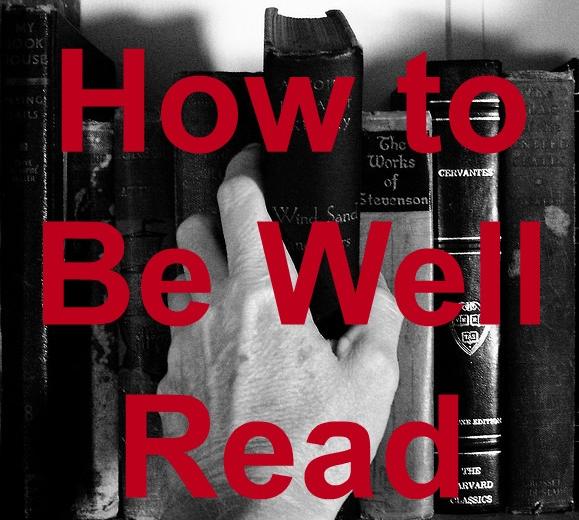
Everyone who is serious about self-improvement wishes to be well read.
A while ago I pondered the question of what it means to be well educated. Now I’ve asked myself the following: “What does it mean to be well read?”
 According to Google, 129,864,880 books have been published in modern history. Needless to say, that’s a lot of books. Upon the myriad titles available, which ones should you read? Should you go out and get yourself a copy of Shakespeare’s plays and sonnets, Don Quixote, The Odyssey, The Decameron, War and Peace, Papá Goriot, and a collection of Emily Dickenson’s poems?
According to Google, 129,864,880 books have been published in modern history. Needless to say, that’s a lot of books. Upon the myriad titles available, which ones should you read? Should you go out and get yourself a copy of Shakespeare’s plays and sonnets, Don Quixote, The Odyssey, The Decameron, War and Peace, Papá Goriot, and a collection of Emily Dickenson’s poems?
- What else should be on your reading list?
- Should you have a lifelong reading list at all, or should you simply read at whim?
- Should you stick to the classics or should you add both fiction and nonfiction across a variety of topics and genres?
- Do you need to include a multicultural array of authors?
- Do the books on your list have to be challenging and difficult to read? Can you include popular fiction?
In addition, how should you read the books that you select so that you can get the most out of them, reflect on what you’ve read, and have better retention? I’ve attempted to answer all of these questions in this post, and hope to have succeeded.
Below you’ll discover how to be well read.
What to Read to Be Well Read
The first question people usually ask themselves once they’ve decided that they wish to become well read is the following: What should I read?
Fortunately, this is a question that several bibliophiles have attempted to answer, so you can look through their recommendations in order to reach your own conclusions. Here are ten suggestions on how to develop a list of books to read:
1. Thomas Jefferson’s Recommended Reading. Thomas Jefferson was the third president of the United States, and was incredibly well read. When the British burned down the Library of Congress during the War of 1812, Jefferson—who had the largest personal collection of books in the US—offered his library to Congress as a replacement.
Throughout his life, several people wrote to Jefferson asking him to recommend a list of books that they should read. Jefferson would respond to those letters. In those letters, Jefferson provided a lengthy list of books that he found to be uplifting. Here’s a list of Jefferson’s recommend reading.
2. 1001 Books You Must Read Before You Die. This literary reference book was compiled by over 100 literary critics and was edited by Peter Boxall. It includes both novels and short stories and each title is accompanied by a synopsis and an explanation of why it was chosen.
You can get 1001 Books You Must Read Before You Die on Amazon, or you can take a look at the list of the 1001 books here.
3. The Harvard Classics. I’ve written about the Harvard Classics on this blog before. Charles W. Eliot—the president of Harvard University from 1869 to 1909 —once said that anyone could get a Harvard quality liberal arts education by reading for 15 minutes, every day, for a year.
Eliot identified exactly what one must read to accomplish his claim in a collection titled the Harvard Classics. The collection contains works from literature, religion, philosophy, science, education, and history.
You can get “The Harvard Classics in a Year: A Liberal Education in 365 Days”, for your Kindle, for just $2.50.
4. Great Books of the Western World. This is another collection of books which is designed to give the reader a liberal arts education, along the lines of the Harvard Classics. It was the brainchild of Robert Maynard Hutchins –president of the University of Chicago—and Mortimer Adler, a philosopher and educator. It contains what is widely known as the Western canon.
The Great Books were marketed door-to-door through the 1960s with the message that anyone could become well-read. You can get the Great Books of the Western World on Amazon, or you can get them here as free eBooks.
5. Great Books. David Denby—an American journalist best known for working as the film critic for The New Yorker Magazine for 16 years—got a B.A. from Columbia University in 1965. Then, in 1991–at the age of 48—Denby returned to Columbia and re-enrolled in two core courses in Western civilization:
- Literature Humanities
- Contemporary Civilization
Denby retook these courses in order to reacquaint himself with the major Western literary, historical, political, and philosophical works. That is, Denby exposed himself once again to “the great books”, beginning with the Greeks and the Bible and ending with the most influential political thinkers of the 20th century. In his Great Books, Denby takes the reader through his personal odyssey of these works.
6. The New Lifetime Reading Plan. The New Lifetime Reading Plan: The Classical Guide to World Literature by Clifton Fadiman and John S. Major was first published in 1960. However, it’s been revised and modernized. This reading plan provides an introduction to great literature from around the globe, including writers and works from Confucius to Charlotte Bronte, and from Gabriel García Márquez to the Koran.
The authors give you a synopsis of each of the books that they recommend, as well as recommendations on how to read and think about them. You can take a look at the list of books included in the lifetime reading plan here.
7. How to Be Well Read. In How to Be Well Read: A Guide to 500 Great Novels and a Handful of Literary Curiosities, John Sutherland—a British academic who has taught English literature for over 50 years—argues that if you want to be well read, just reading the classics won’t cut it.
In fact, his list includes everything from imposing Victorian novels to more eclectic picks, such as Ian Fleming’s Goldfinger, E.L. James’ erotic romance Fifty Shades of Grey, and J.K. Rowling’s Harry Potter books.
8. Classics For Pleasure. In Classics for Pleasure, Pulitzer Prize winner and book critic for The Washington Post Michael Dirda recommends ninety of the world’s most entertaining books and offers a brief essay on each one. Although the word “classics” is in the title of the book, Dirda wanted to go beyond the “obvious classics”.
In his “Classics for Pleasure”, Dirda includes Icelandic sagas, the Tao Te Ching, Dracula, and other books he has enjoyed across several genres which he felt have helped to shape literature, even if they’re not considered “classics” in the traditional sense of the word. Dirda indicates that instead of thinking of a book as being either high literature or popular literature, the only question that really matters is whether the book is well written or not.
Here’s a YouTube video of a talk that Dirda gave at the Library of Congress in which he reveals why he wrote “Classics for Pleasure”, as well as the titles that he recommends in said book.
9. Stephen King’s Recommended Reading. Stephen King—the beloved author of horror, fantasy, and the supernatural whose books have sold over 350 million copies–explains in his book “On Writing: A Memoir of the Craft”, that if you want to be a writer, you have to read. In addition, he goes on to recommend 96 titles that all aspiring writers should read.
You can take a look at King’s list of “96 Books For Aspiring Writers to Read” here.
10. The Little Guide to Your Well Read Life. In The Little Guide to Your Well-Read Life, Steve Leveen advises the following: “Do not set out to live a well-read life but rather your well-read life.” That is, instead of blindly adhering to someone else’s reading list, seek out those books that seem to have been written for you. He recommends that you choose books that thrill you, move you, and transport you.
Leveen writes that in mid-life he concluded that he wasn’t well read. He then decided to change that by making reading a priority. In his guide he shares that the result of reading more books was the following: “my life has become electrified and zestful –like living in color rather than black and white”.
In his guide Leveen recommends that you create a list of books that you want to read by doing the following:
- List the books that you already know that you want to read.
- Divide your list into categories and genres that make sense to you.
- If there are a few business books that you want to include or books on how to advance in your career, include them.
- Ask friends and people whom you admire to recommend books to you and–if you’re intrigued by their suggestions–add them to your list.
- If there’s an author you’ve enjoyed reading in the past, look for more books by that author and include those books on your list as well.
- Is there a subject that you enjoyed in school that you want to know more about? Look for books on that subject and write down their titles.
- What else interests you? What are the best books in those areas? Those books should also go on your list.
 Ten General Principles on Becoming Well Read
Ten General Principles on Becoming Well Read
As stated in the introduction, in order to be well read it’s not enough that you read a lot. In addition to reading lots of good books, you have to read well. Here are ten general principles on how to read so that you can become well read:
1. Read Deliberately. As was stated in the section above, instead of simply picking up books at whim, create a lifetime plan for reading. Choose your reading carefully and deliberately. After all, as Henry Thoreau once said, “Read the good books first, or you may not have a chance to read them at all.”
2. Read For Pleasure. You will never make time to read if you don’t choose books that you think you’ll enjoy reading. That is, read for pleasure and not out of obligation. Life is too short to force yourself to read books that you don’t want to read.
3. Block Out Time In Your Calendar. In order to read more, you have to block out reading time in your calendar. When are you going to read? First thing in the morning? Last thing before going to bed? Give your reading a time slot in your schedule.
4. Shut Off All Distractions. Treat your reading time as sacred. Find a quiet spot, close the door, turn off your phone, and do whatever else you need to do in order to focus completely on your reading.
5. Be Patient. At first, your internet brain won’t want to stay still during the time that you’ve allotted for reading books. Instead, it will crave the constant stimulation that it gets from the internet. However, if you stick to it, you’ll discover that after a while you’ll regain the ability to become completely engrossed in what you’re reading.
6. Alternate Between Different Levels of Difficulty. While it’s true that shouldn’t try to force yourself to read books that fill you with dread, you should add books to your reading list that are currently above your level of comprehension. After all, that’s how you grow as a person and expand your mind.
A great way to get yourself to read difficult books is to alternate between different levels of reading difficulty. Do the following:
- Take a look at your reading list and choose a book that’s easy to read to tackle first.
- Once you’re done reading the first book you’ve selected, look for something that’s more challenging.
- When you’re done with the challenging book, choose another easy book.
- Continue alternating the books that you read depending on their level of difficulty.
7. Think About What You Read. As Denis Parsons Burkitt once said, “It is better to read a little and ponder a lot than to read a lot and ponder a little.” At the end of each paragraph, each page, or each chapter of the book that you’re reading, stop for a moment and think about what you’ve just read.
Think back to when you were in school and your teacher would ask you to read a passage out loud and then explain to the class what the passage was about. Do that for yourself now.
8. Write In the Margins. Make the book your own by scribbling your thoughts on the margins and highlighting passages that you consider to be particularly important. In addition, hold a conversation with the author as you read and write down where you agree with the author and where you disagree.
As Mortimer Adler once said, “ . . . writing in a book indicates intellectual ownership”.
9. Learn How to Read Well. Of course, you already know how to read. However, there’s a difference between reading at an elementary level—which is the level at which most people read–and reading well. That is, reading at a level in which you digest and absorb what you’re reading and are able to incorporate it into your knowledge base.
In order to read well there are a few additional steps that you need to add to your current reading process. The three best resources I’ve found for learning how to read well are the following:
- How to Read a Book: The Classic Guide to Intelligent Reading by Mortimer Adler
- The Well-Educated Mind: A Guide to the Classical Education You Never Had by Susan Wise Bauer
- How to Read Literature Like a Professor: A Lively and Entertaining Guide to Reading Between the Lines, Revised Edition by Thomas C. Foster.
10. Start a Reading Journal. One of the best ways to retain what you read is to write a summary of it in your own words in a journal or Commonplace Book. Here’s a format you can use:
- Write the title of the work and the author at the top.
- Rate the work from 1 to 10, depending on how much you enjoyed reading it.
- Copy quotes and passages from the book that you highlighted.
- Write a 400 word summary of the book.
- Write a few sentences on how the book changed you, or how it has helped you to gain a better understanding of the human experience.
You can simply use a Moleskine or any other notebook, or you can get yourself a book journal such as Reading Journal: For Book Lovers by Potter Style.
Bonus. If you choose to read classic literature, you can supplement your reading with literary analysis books, Massive Open Online Courses, and history books about the time period in which the book is set.
As an illustration, if you read “Don Quixote” by Miguel Cervantes, you can supplement it with the following:
- Cervantes’ Don Quixote –This is an Open Yale Course taught by Roberto González Echevarría, Sterling Professor of Hispanic and Comparative Literature at Yale.
- Imperial Spain: 1469-1716 by J.H. Elliott. The most comprehensive, account of the dramatic rise and fall of imperial Spain (the time period during which the novel takes place).
Conclusion
Take control of your reading by creating a lifelong reading plan. Then, find a comfortable chair, make sure that you have good lighting, and get to it. Live your best life by being well read.


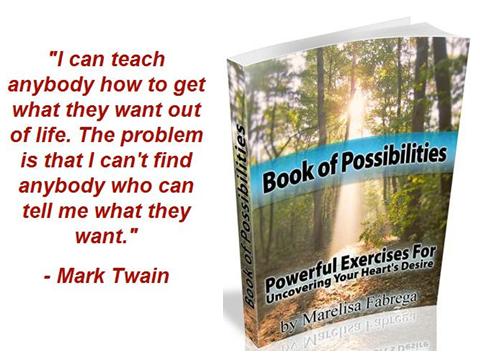
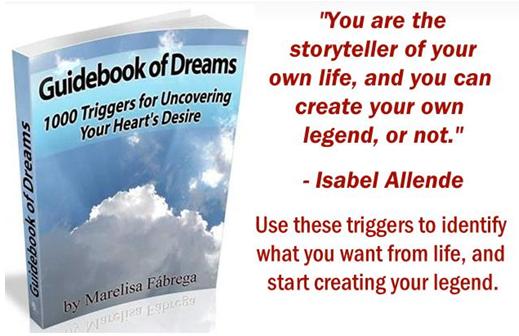
Related Posts:


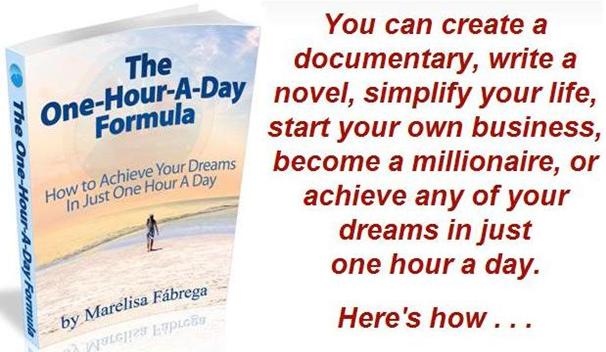
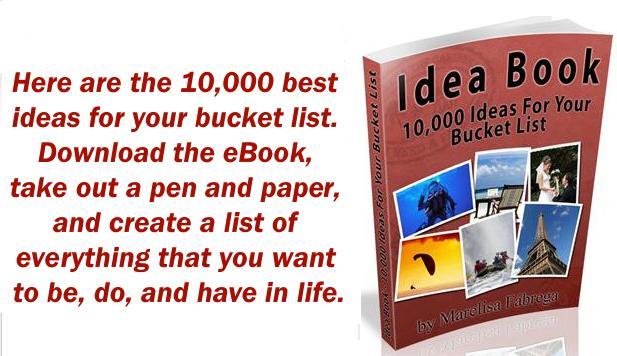
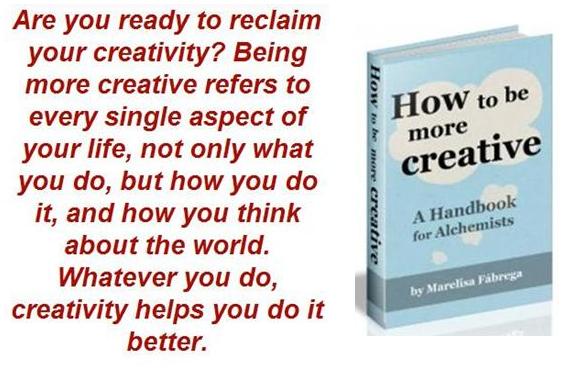
 Marelisa Fabrega is a lawyer and entrepreneur. She holds a Bachelor of Science in Business Administration from Georgetown University in Washington, D.C., as well as a Juris Doctor from the Georgetown University Law Center. You can learn more about her
Marelisa Fabrega is a lawyer and entrepreneur. She holds a Bachelor of Science in Business Administration from Georgetown University in Washington, D.C., as well as a Juris Doctor from the Georgetown University Law Center. You can learn more about her 





